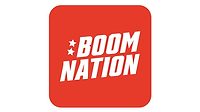Mycocycle Raises $2.2M in Seed Funding to Scale Mushroom-Based Circular Solutions
Waste like asphalt shingles are detoxified by mushrooms and transformed into renewable byproducts

Bio-technology company Mycocycle announced it has raised a total of $2.2 million in seed funding, bringing total funds raised to $3.7 million. Led by Anthropocene Ventures, the seed funding round also includes investments from the TELUS Pollinator Fund for Good, Alumni Ventures, and Telescopic Ventures, among others. The new capital enables Mycocycle to establish a model pilot facility, develop its first-generation decentralized treatment container, validate reuse of its bio-based byproduct, and expand its team.
With this funding, Mycocycle will expand its team with five new roles, including vice president of research and innovation and vice president of operations and product development. The company also plans to establish a model pilot facility to expand operational capabilities and develop its first generation decentralized treatment container, MYCOntainer(C), which will increase Mycocycle's capacity to serve customers beyond their worksites. Leveraging the new capital, Mycocycle anticipates validating its biobased byproduct by Q3 of 2023.
Waste mismanagement accounts for 20% of global methane emissions and 3.3% of global greenhouse gas emissions. As efforts to limit global warming to 1.5 degrees Celsius increase, the waste sector reflects a key opportunity to make progress towards global emission reductions. In the U.S. alone, construction and demolition produce 660 million tons of waste annually, more than twice the amount of municipal solid waste produced per year. With landfills at 85% capacity and global construction on the rise, there is a need to divert waste within the construction industry and drive circularity, repurposing materials whenever possible. By 2030, the construction industry is projected to be more than twice the size it was in 2020, with a total addressable market of $14.4 trillion. This growth trajectory underscores the urgency for scalable, circular, waste diverting solutions.
Mushroom Power
Mycocycle is addressing waste mismanagement by transforming industrial waste into new raw materials. Mycelium is a fungal root structure that is fire and water-resistant, insulative and lightweight, making it an ideal material for the manufacturing of acoustic tile, flooring, concrete, walls, and insulation. Through their patent-pending technology, Mycocycle optimizes the natural functions of fungi to detoxify and transform waste within the built environment like asphalt shingles, insulation board, crumb rubber, gypsum drywall, fibers, and other hard-to-recycle building materials.

The trash Mycocycle treats contain petroleum-derived chemicals like heavy hydrocarbons or plasticizers that may leave a legacy of environmental contamination when burned or buried. The Mycocycle process efficiently neutralizes toxicity while transforming materials into a renewable, low-carbon, mycelium-based raw material. Mycocycle's transformative process drives circularity in the construction supply chain, diverts waste from landfills, and lessens the need to extract new virgin materials from nature.
"In the global race to decarbonize the economy and prevent the planet from warming at devastating levels, waste management cannot be overlooked, nor can the power of nature-based solutions to create a brighter, more sustainable future for all," said Joanne Rodriguez, founder and CEO of Mycocycle. "The completion of this seed funding round underscores Mycocycle's readiness to scale and become a leading provider of low-carbon waste management solutions that function in harmony with the natural world. We're primed to leverage mushrooms, the planet's recyclers, across the nation's waste and building materials sectors to reduce emissions in two of the heaviest-polluting industries and transform waste to resources."
The company's patent-pending approach takes approximately two weeks to reduce toxins and create a harvestable raw material. Mycocycle kicks off its three-step treatment at the point of waste generation on site with manufacturers or contractors, leveraging its containerized solution, MYCOntainer, to ensure toxic waste is processed in a climate-controlled environment.
The three phase process starts with blending lab-cultivated fungi with ground waste materials, allowing it to incubate and grow over seven to 14 days, where it is then harvested and processed into new low-carbon raw materials like fillers and fibers used within the building products industry. Mycocycle's solution is able to reduce the toxicity of materials by up to 98% on average. The global mycelium market is expected to reach $3.84 billion by 2026 and Mycocycle's disruptive solution is positioned to create a new market of biobased raw materials out of waste for the building materials industry (>$1 trillion market globally).

"At Anthropocene Ventures, we invest in firms that bring our economy into alignment with the ecology of the planet. Mycocycle's innovative, waste-diverting solution, reflects that commitment and demonstrates that a world with less landfills and more synergy with nature isn't just possible, it's profitable," said Matt McGraw, general partner at Anthropocene Ventures. "In the continued fight against climate change, we're proud to support Mycocycle's journey as the company addresses an enormous opportunity for decarbonization and circularity within the waste management, construction, and manufacturing industries."
Since launching, Mycocycle has treated 12,000 pounds of material via paid pilots with customers across the waste management, recycling, and manufacturing sectors, as well as with building owners and contractors like META and Lendlease who are focused on reduction of Scope 3 emissions and innovations within their industries.
Looking for a reprint of this article?
From high-res PDFs to custom plaques, order your copy today!





